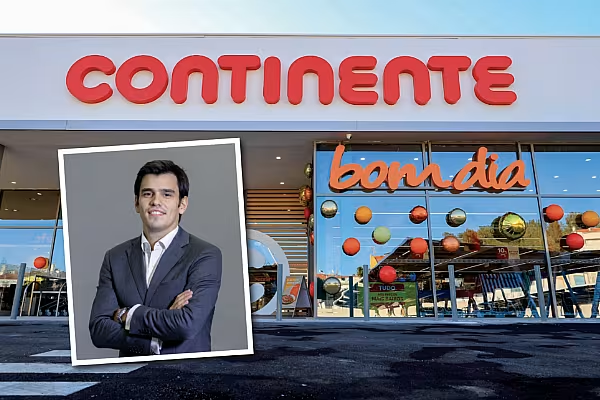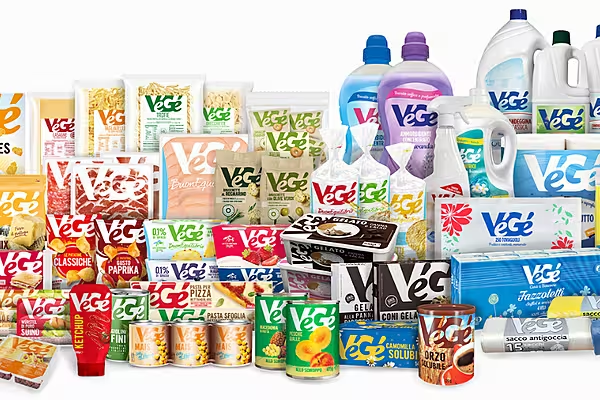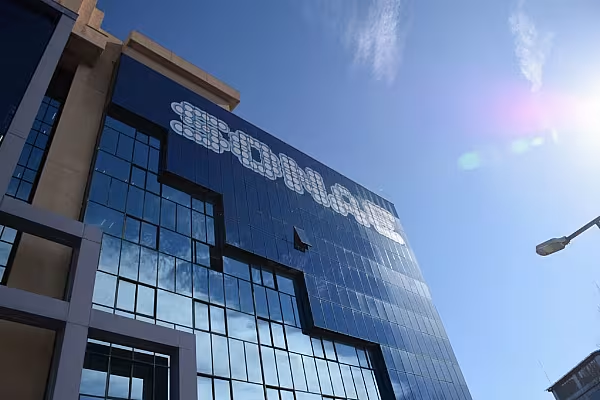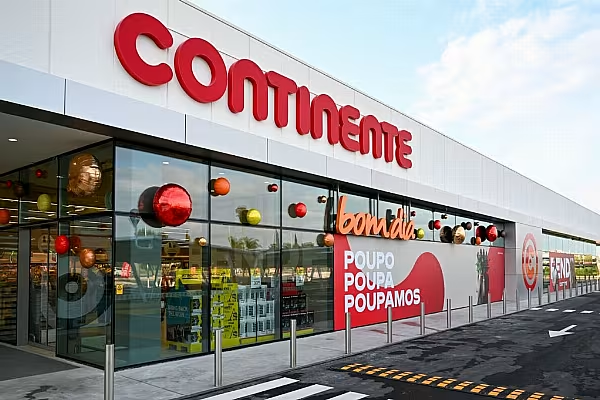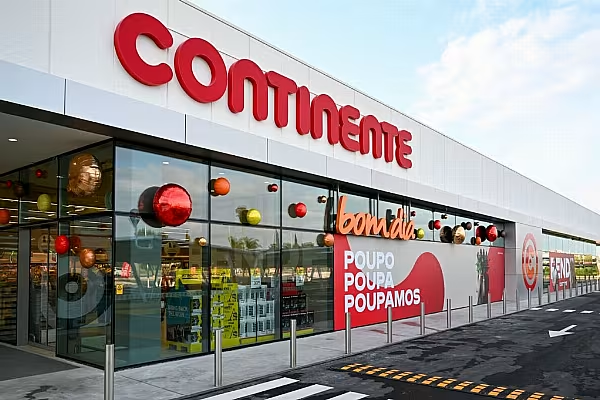ESM talks to MC’s Fernando van Zeller about the Portuguese group’s latest investment in the health, wellness and beauty segment. This article first appeared in ESM's September/October 2023 edition.
MC, which operates the Continente chain, Portugal’s largest grocer, has had a solid 2023 to date, reporting a 12.6% increase in turnover in the second quarter of the year.
The group recently announced a major investment in the health, wellness and beauty segment, overseeing the merger of Arenal Perfumerias (of which it is the majority shareholder) with rival Druni.
Once this deal has been concluded, at the end of 2023, it will have created a retail powerhouse with a turnover of €800 million and establish MC as the leading operator (inclusive of its Wells parapharmacy business in Portugal) in the health, wellness and beauty segment on the Iberian peninsula.
ESM caught up with Fernando van Zeller, MC’s chief financial officer, to talk about the deal and the wider performance of the Sonae-owned business.
Strategic Pillar
“The health, wellness and beauty segment is a key strategic pillar for MC that complements our core food retail offering in a segment with attractive fundamentals,” van Zeller explains. “The success of our parapharmacy operation – Wells – in Portugal incentivised us to analyse international expansion opportunities in this segment, leading to the acquisition of 60% of Arenal in 2019.”
Despite the impact of the pandemic on the sector, the group’s investment in Arenal appears to have paid off, with the latter almost doubling its turnover since the start of 2019, accelerating both its online and offline presences, as well as “leveraging MC’s expertise and assets in this segment, to strengthen its value proposition,” according to van Zeller.
Ownership Structure
Each boasting a long-standing family ownership, Arenal, with 66 stores located mainly in the north of Spain, is a smaller business than Druni, which operates 377 stores (as well as a rapidly expanding online channel).
Following the completion of the merger, this will be reflected in the ownership structure – 50% will be owned by an MC subsidiary, in which Arenal’s founding shareholders will hold 10%, while 50% will be owned by Druni’s founding shareholders.
The combined business will boast a total turnover of approximately €800 million, an EBITDA of €60 million (pre-IFRS 16), and a network of approximately 500 stores.
“Druni and Arenal have a highly complementary store footprint, and this joint venture will enable the combined entity to have full coverage of the Spanish territory and capitalise on both companies’ online channels and strong customer bases,” says van Zeller.
“Simultaneously, the partnership will leverage on the complementary capabilities of Druni, Arenal and MC to improve the value proposition across different dimensions – such as assortment, pricing and logistics – and accelerate the growth plan, both in the physical-store network and e-commerce.”
MC is also confident that it can extract valuable market synergies from the deal. Health, wellness and beauty is a market with high growth potential that can also help to support MC’s established food retail business.
“This strategic movement will increase our international exposure in a geography where we are already operating, and further accelerate the growth trajectory of the company,” van Zeller adds.
New Opportunities
Health and beauty isn’t the only area in which MC is seeking to double down on investment. The new-growth business segment in which it falls includes Cozinha Continente, a new dining concept, as well as other complementary businesses. While this segment accounted for just €1 billion in turnover last year, it also saw the biggest growth in sales, of 19%.
“We are continuously assessing new growth avenues and complementary businesses to MC’s portfolio, which can reinforce our value proposition and accelerate our growth,” says van Zeller.
“It is in our DNA to constantly look for new businesses, and today we have several successful complementary concepts in our portfolio that were launched by MC, such as ZU [pet care] and Note [stationery]. We believe this approach allows us to further enhance our differentiated value proposition.”
Cozinha Continente, in particular, holds plenty of potential, offering authentic Portuguese cuisine in a market flooded by international ethnic flavours. Combining takeaway, online ordering, delivery and in-store dining, the timing of its launch could be beneficial, given the resurgence of food to go in the period since the pandemic.
According to van Zeller, “[Cozinha Continente will] support our core food retail segment with a renewed offer range in a segment that is expected to grow significantly in the near future, responding to changing consumer trends.”
Read More: Continente Opens Innovation Lab For Private Label Products
Inflationary Pressure
Like many of its peers, MC has faced margin pressures in recent months, with the retailer’s decision to invest in keeping prices low amid high inflation having a bearing on its performance.
In full-year 2022, the group saw its net profit from continuing operations drop by €39 million, to €179 million, in which the margin contraction from its food retail business played a significant role.
In the current year, its turnover growth of 12.6% in the second quarter and like-for-like growth of 11.1% were largely driven by higher prices, however, the group has seen a “positive evolution” in volumes sold in the quarter, van Zeller notes.
“In the first half of 2023, MC maintained its price investment efforts in a still-high – albeit decreasing – inflationary context, where consumers continue to trade down to more affordable products and operational costs continue to grow significantly,” he explains.
“In this period, operational margins have been broadly stable, as the increase in operational costs has been offset by the reduction in energy prices, which were considerably high in 2022, due to the conflict in Ukraine and the inflationary context.”
As a result, MC reported a net profit of €63 million in the first half, on a par with that recorded in the same period last year (€62 million) – a sign of normalisation in the marketplace?
“Our strategic focus on price investment and the changes in consumer behaviour – namely the trading-down phenomenon – obviously had a negative impact on margins. Nevertheless, we do not measure the economic impact of these effects separately from our long-term strategy of supporting Portuguese consumers across the different economic cycles, providing a strong and differentiated value proposition.
“We believe that the reinforcement of our leadership position in the Portuguese market shows that consumers recognise the merits and strength of MC’s strategy.”
